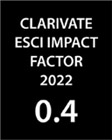Multiethnicity and the Idea of Europe
DOI:
https://doi.org/10.17649/TET.17.2.889Keywords:
Európa-eszme, multikulturalizmus, kulturális pluralizmus, különbözőség, állampolgár, bevándorló, hovatartozás, EU-szintű jogokAbstract
This paper explores the meaning and relevance of the Idea of Europe' in the context of a multicultural continent that increasingly draws on the presence and practices of people from non-European backgrounds. It argues that in a Europe of extraordinary cultural interchange and immigration from all corners of the world, the classical Idea of Europe is strikingly exclusionary and backward looking – a poor motif for the future. The Idea continues to appeal to the Christian-Enlightenment-Romanticist heritage of European nations, to mobilise support for European integration.
The paper develops an alternative Idea of Europe, one based on an evolving ethos of belonging in a Europe that is a migrant space, to replace an ethos based on the enduring cultural values of a body of people called Europeans. It makes the case for unity around egalitarian political principles such as a commons protected by appropriate EU-leVel rights, that can both support and bind cultural pluralism and difference. It also proposes democratic vitalism as Europe's core political project, that is the idea of becoming European, on the basis of the vibrant clash of an empowered multiple public. No myth of origin, no myth of destination, only the commitment to a plural demos.
Downloads
Published
How to Cite
Issue
Section
License
Authors wishing to publish in the journal accept the terms and conditions detailed in the LICENSING TERMS.






